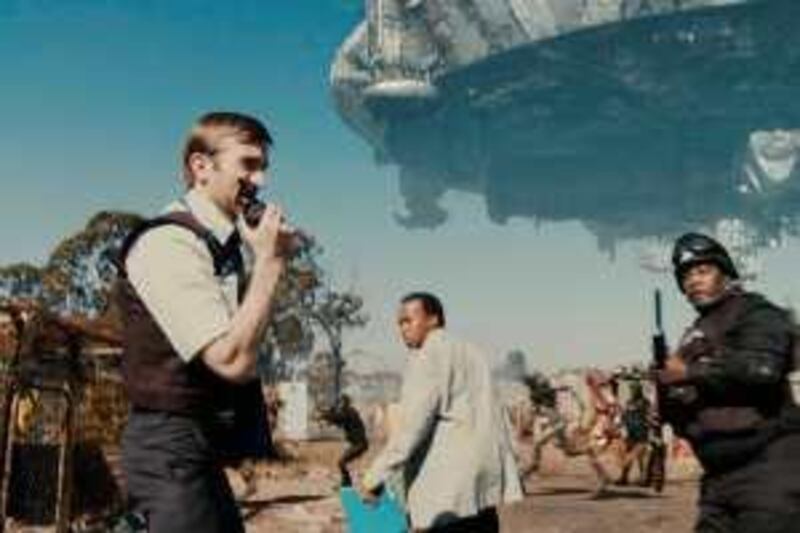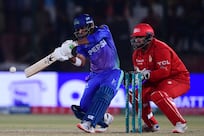Half fast-paced science-fiction thriller, half powerful allegory for apartheid, District 9 sounds like a cinematic hybrid so unstable it would need to be grown in a lab. Yet, somehow, it became one of this summer's most loved films. It tells the story of a ghettoised race of aliens who inhabit a squalid shantytown in Johannesburg and are oppressed by the city's human population. Theirs is a plight many viewers probably sympathise with, so few would have predicted that the anti-apartheid parable would be branded as racist for its depiction of Nigerians.
Earlier this month, the Nigerian government asked cinemas to stop showing District 9, saying it portrays its people as gangsters, cannibals and prostitutes. The country's information minister has asked the makers of the film, Sony, for an apology. Several Facebook groups protesting against the film's portrayal of Nigerians have also been created. The blogger Nicole Stamp, one of the film's earliest critics, wrote in the controversy-bating essay District 9 is racist: "The Nigerian gangsters are bloodthirsty, dishonest thugs, which is not a big deal - they're gangsters. They're no worse than the film's (mostly white) government officials, who coldbloodedly torture and murder the aliens."
Stamp's wrath was roused by the film's far uglier stereotypes. "[They] have a wailing 'witch doctor' who instructs them to eat the aliens. And they do it. Bloody, wriggling and raw, of course. And when [the protagonist] Wikus's arm grows a claw, the Nigerian gang boss starts licking his chops, eager to commit cannibalism. "Yup, that's Hollywood's Africa - the Africa we get from the media, isn't it?" The film, she said, portrays black Africans as "degenerate savages".
It's true that District 9's Nigerian characters act reprehensibly towards the aliens throughout the film. It's also easy to understand how it could make painful viewing for Nigerian audiences. But it's a fair bet that most audience members leave the film in no doubt of who the real villains are: politicians, corporate men and soldiers keep the aliens locked in poverty and - worse - think nothing of murdering or carrying out scientific experiments on them. Almost all of them are white. There's a scene in which the film's lead protagonist revels in the incineration of an alien nest without truly contemplating the horrific reality of his actions.
The Nigerian journalist Tola Onanuga recently wrote in The Guardian: "District 9 is neither racist nor xenophobic. The South African director Neill Blomkamp has made an astonishingly thought-provoking and intelligent film that in turn assumes intelligent thinking from his audience. And while the film may occasionally play on clumsy racial stereotypes, it also encourages us to challenge them." The film successfully makes the audience empathise with violent and revolting-looking aliens, and bravely presents the ugliness of racism and human shortsightedness.
District 9 isn't the only recent film to be accused of racism. In the last year, Sam Raimi's horror Drag Me to Hell, in which a witchlike gypsy attempted to swindle a bank and curse one of its employees, was branded with the tag. "The old immigrant lady who brings down the curse, Mrs Ganush, is basically a broad racist stereotype," wrote Annalee Newitz on film website i09.com. "She's called a gypsy, which is a slur for an actual ethnic group called the Roma, who suffer a great deal of discrimination."
And in January, armed police were forced to guard cinemas in India after slum dwellers ransacked a picture house showing Slumdog Millionaire, objecting to their depiction in the film. The movie went on to win a clutch of Academy Awards, despite continued objections from some quarters about the way British filmmakers portrayed India.





